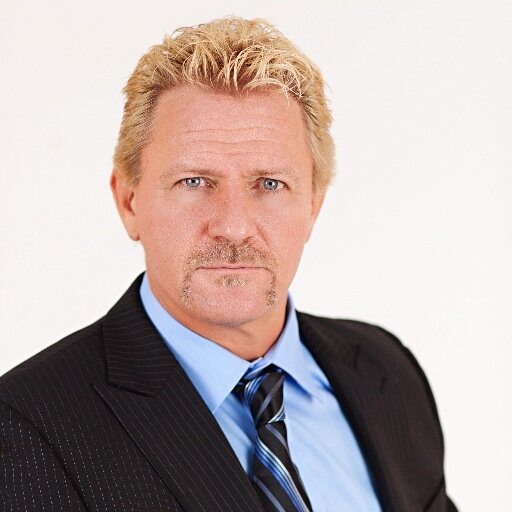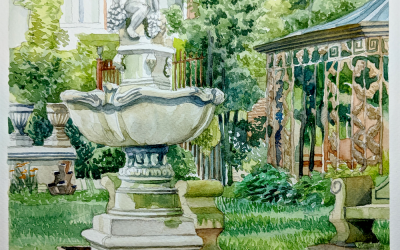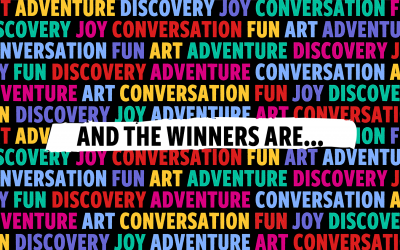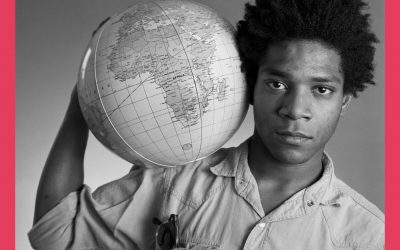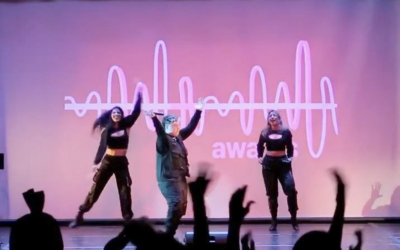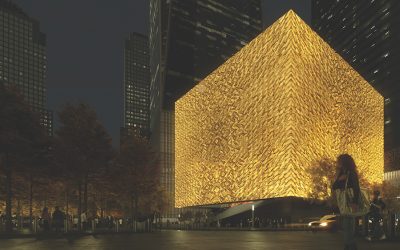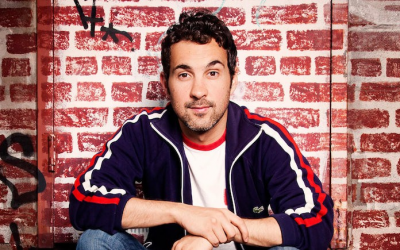Within the wrestling world, Jeff Jarrett needs no introduction. He had championship runs with most of the major North American wrestling promotions of the past three decades. As a third-generation promoter, he co-founded Total Nonstop Action Wrestling in 2002, where he remained regular on-screen talent through 2014. Beyond work within wrestling, he also appeared in films including Spring Breakers, Head Of State and Life With Mikey. But that’s only part of the story with Jeff.
Global Force Wrestling — the wrestling company that Jeff founded in 2014 after leaving TNA — will appear region for its first shows of 2016. Live in Poughkeepsie on Jan. 22 and in Rahway on Jan. 23, GFW makes its New York and New Jersey debuts with Jeff, wife Karen and recent Downtown interview subject Colt Cabana in tow. Prior to that, GFW also has its hand in the forthcoming film The Masked Saint, which arrives in theaters on Jan. 8; Saint includes an appearance by the late “Rowdy” Roddy Piper in one of his last roles.
In the midst of the holiday season, Jeff kindly took the time to talk to Downtown about his past, present and future. As he pointed out during our Q&A, wrestling may be the family trade, but his love of the business is what keeps him around. For more on Jeff, following him on Twitter via @RealJeffJarrett, while GFW can be directly tracked at www.globalforcewrestling.com.
When did you know that you were more than a wrestler, also an entrepreneur?
Jeff Jarrett: My grandmother got into the business back in the 1940s, so I’m third-generation in the wrestling business. She got into the business as a second job, then she worked her way up…it’s sort of a family trait. When I really got a taste of the wrestling business, I know I didn’t have my license yet, I was 14, 15 years old. The small wrestling shows at the armories, high school gyms, those type of shows that we ran into the southern state area, my father and my grandmother’s promotion…On one instance at an armory, I got to do the concessions. You buy the hot dogs, Cokes, popcorn, candy, bubble gum, all the things you put in a small concession stand. I can remember buying the stuff and it was X amount of dollars. My grandmother said, “I’m gonna front you this, but you gotta make that back, and when you make back then that’s your profit.” So pretty simple. That night, it was a profitable show at the gate, and then concessions, it was a hot summer night in the south, so we sold a lot of Cokes and a lot of popcorn with high profit margins. Not as high as they are today at sports games, but you know…
At the end of the night, I counted the money and I had buddies who cut grass or worked construction at their dad’s construction sites, their own family businesses, and I remember saying, “You can make a lot of money at this.” That sparked my interest at a really young age, that you work hard, you plan right and there’s obviously an element of risk. I can remember my grandma harping on, after the show, that not all shows are going to be like this and you have to save money for a rainy day…This business, the shows can go up and down. So the entrepreneurial spirit was instilled in me at a young age. That was a long answer, wasn’t it, buddy? (laughs)
Absolutely perfect. Outside of the wrestling world, did you ever have any other businesses like real estate or a restaurant?
J: No…I’ve had some rental properties, but I wouldn’t call that a real estate business by any stretch of the imagination. I’ve really never had an interest. My financial advisor is a guy that, we graduated high school together, I sat next to him in math class. He got a 36 on the ACT and I didn’t do that well. (laughs) A really, really smart guy. He likes to tell the story that he had mentors when he was building his financial services business. I never really had anybody tell me this, but certainly I didn’t have a passion for anything else or follow anything else. You always have your best chance at being successful by doing something that you love and something that you know something about. I never had a passion for real estate or the service industry, although I’ve been around that a lot. I’ve got buddies who go into health clubs and all sorts of businesses, and I’ve just never really had an interest in it. I’m obviously no spring chicken anymore, I’ve seen guys get into it who really didn’t know anything about the core of the business, and it doesn’t always end up with the best results.
Sure, and beyond owning wrestling promotions and actually wrestling, you’ve also acted a lot. Was that something you enjoyed doing, or just opportunities that were thrown to you that you took?
J: Every acting gig that I’ve gotten has literally fallen in my lap. I’ve probably turned down more than I’ve actually done, and it’s not because I don’t like acting, it’s because my priorities were my family and my core business. So acting, although when I’m there I really enjoy it, because it may be an extension, but nothing replaces live. Nothing replaces ad-lib. Nothing replaces performing in front of a live crowd. You’d probably ask [Dwayne] The Rock [Johnson] that, he’s hottest box office attraction in the world, and he would still come back to wrestling because I’m sure it’s a great payday and it’s great exposure…But if he didn’t love it at this stage of his career, he wouldn’t be doing it. He loves and thrives, like any of us in this industry, there’s nothing that really replaces that. The one thing that about acting that is sometimes sort of a nuisance, they do takes over and over and over and over. There’s only so many ways you can do a scene, so that can get monotonous, of course.
Speaking of actors in wrestling, were you around Andy Kaufman when he was in Memphis wrestling?
J: That was my father’s promotion, and to say that I hung around him, no. But I was at a couple of those events, and the business was so different back then, I’ll use the word “protected.” It was just a unique set of circumstances. Obviously the behind the scenes conversations between Lawler, Kaufman and all of that, [with] the David Letterman thing, I can remember sitting on my couch as a little boy and jumped off like, “Wow, did that really just happen on David Letterman?” Andy loved the business and it showed from the lengths that he went to.
So the secret was protected from you, even though your father was directly involved?
J: Yeah, to a certain level, the unwritten rule was that you didn’t discuss. Although you hear conversations in his office, when he’s sitting on the couch, on the phone and all that. It’s a family business, some folks are electricians, lawyers, plumbers, doctors, it’s family conversation.
That’s a great point. How did the opportunity to produce The Masked Saint come to you?
J: The lord blessed us with this. They finished the movie and they approached Global Force Wrestling through their research, and it’s really ironic because Brett Granstaff and Gary Granstaff at Ridgerock [Entertainment Group] — the principals in it — are originally from the Nashville area. We grew up and have had homes, maybe about 30 minutes apart, but have never met each other until this summer, because their family moved off and has lived all over the country literally, Vegas, L.A., upper Washington State, Chattanooga…They traveled while I was doing my career. Long story short, they approached Global Force Wrestling and myself and Karen [Jarrett] because they wanted us to be one of the marketing arms of the movie. It’s a faith-based movie, so they have different avenues on how they promote to the different audiences. It’s a great story, it appeals to the secular movie genre as well, because it’s so well-done. It’s really a good movie and stands on its own, whether you’re a wrestling fan or not, whether you’re attracted to faith-based movies or not. Diahann Caroll’s in it, it’s one of Roddy’s last movies…
Anyway, they approached us and as we talked things out, I looked at it as a marketing opportunity for Global Force Wrestling, to do things a little different. As we’ve gone on weeks and months, it’s turned into a passion project for me. The more and more I’ve got into it, the more and more I realize how they…We’ve all seen wrestling movies, good and bad. They really own wrestling and do it with such integrity and professional, and quite frankly they blew me away when I saw the screener and how much work…
Roddy, before I grew up I was a fan of Roddy, his Wrestlemania run was right before I broke into the business. I was a fan of Piper’s Pit and all of that, then got to meet Roddy, work with Roddy, and we stayed in contact. He was such a unique individual, but he’s got something that I think I have, and he had a passion for life. When he did something, watch out buddy, he did it. In this role, he played an evil wrestling promoter, so he joked — and I’ve joked with others — it wasn’t much a stretch for Roddy to have to put on his acting chops. Although he did fantastic, so I’m sure he’d been around his fair share of evil wrestling promoters. But Roddy is phenomenal in the movie, it’s a great story.
On top of that, I’m a big non-fiction guy, whether it’s a book, or stories on television, and this movie is based on real events. Chris Whaley was a journeyman wrestler down in Florida, who decided to go into seminary and went on to pastor a mega-church down in Orlando. As he was having his transition from wrestling to preaching, he had some real-life struggles. That’s part of the story and it plays out, and like any good wrestling story comes to an end, this movie culminates in a cage match. It’s so good, you’re sitting on the edge of your seat, it’s a good story.
Sounds great. You’re someone who’s been watched by millions of people a week on televisions for years and had action figures. Given that amount of success you’ve experienced yet how niche-oriented everything is now, what would it take for you to view The Masked Saint as being successful? Or even Global Force Wrestling as successful?
J: There’s no secret in whether you ran the concession stand, which I did in ’82 or ’83, or you’re talking about 2015, 2016 — your bottom line. Businesses, if they’re not profitable in the long-run, everyone understands start-ups…[These days] sports franchises are loss-leaders. They paid way too much for it, but it created that exposure, created that demand, look at where all the major networks are. You have to calculate your business, but at the end of the day, you have to have more black ink than red ink. You’ve got to be profitable. In The Masked Saint, they’re promoting to their audiences, it’s going on X amount of screens. They’re already got plans for week two, week three, week four, expanding into other screens.
It’s no different than our business. We started last summer with that Grand Slam Tour, branding awareness was through the roof. Did we make a fortune? Absolutely not. The winter baseball meetings were in Nashville this week, all the major and minor league teams were here, so I had meetings, back to back days, talking to owners and general managers about our Grand Slam Tour next year. One guy sat back and he just said, “So tell me what your thoughts are, your feedback.” I told him, “I just had one of your cohorts tell me that in the Summer of 2015, Global Force Wrestling’s marketing department, if you have each team with about three people in the marketing department times 20 teams, that’s 60 people who worked on Global Force Wrestling over the summer.” So our brand awareness and our digital numbers show it, our social media, our views on YouTube, so the barometer’s there that show the awareness.
Like you said, everything is so much more niche now, so it’s much harder to cut through than it was when I lost TNA. WWE and Vince McMahon are no longer the 800-pound gorilla, they really are the 8,000-pound gorilla. They’ve got a company that’s been around 50, 60, 70 years, their [WWE] Network is just doing phenomenal. When you really sit back and look at it, how success that is, it’s one of the top 10 over-the-top services in the world, and you’re talking about professional wrestling.
So when we’re starting on a step by step basis, we went to Las Vegas in July, August and September and filmed a total of 16 one-hour episodes, and the shows we’re launching in January, our first two live events of 2016. It’s no secret that the northeast has always been and always will be a real, real hotbed of professional wrestling…and Poughkeepsie, both of these shows, have a personal attachment to myself. When I started for the WWF in 1993, the first time “Double J” appeared on TV it was in Poughkeepsie, New York out of the Mid-Hudson Civic Center. We’re coming back and having our first shows of Global Force Wrestling in the northeast starting at the Mid-Hudson Civic Center on January 22nd. It was a part of promotional mentality that we wanted to partner with all kinds of promotions, no matter how big and how small, because I truly believe it’s a win/win for the wrestling fan. Pro Wrestling Syndicate, based right there in New York City, we’ve got a show in Rahway, New Jersey on that Saturday night right after Poughkeepsie. We’ve partnered with them as well, with their stars and our stars. I’m excited, if you couldn’t tell, about 2016 for Global Force.
Is there anything you haven’t yet accomplished that you still hope to?
J: I guess I’ve always been on one level…I don’t know if “athlete’s mentality” would be the correct description here…but I’m very thankful, very blessed, very grateful for the career I’ve had, the longevity I’ve had, I don’t take any of that for granted. But that is in the past, and so I like to look towards the future. My passion for professional wrestling today, it’s stronger than it’s ever been. As we roll into 2016, and we’re talking to the different broadcasters — not just in the U.S. but all around the world — and how the world has evolved with streaming services, like the WWE Network or Netflix or Hulu. And then you’ve got cable and all the different means of distribution outlets. It’s a real challenge, but it’s something I’ve dug in and I truly cannot wait for next steps to just keep rolling along and keep growing the brand.
People know you as a wrestling guy, and some know you for your acting and movie work otherwise, but what do you like to when you’re not working?
J: That’s the easiest question you’ve asked this interview. I like to walk out my backdoor and get in my boat and cruise the lake with my wife and kids. There is something about water in my psyche that I really enjoy, but spending time with the kids, I love to watch my kids in activities. They’re all into different things, soccer, guitar, basketball, dance, softball. Spending time with my wife and kids, relaxing on the water, that’s my hobby.
-by Darren Paltrowitz

